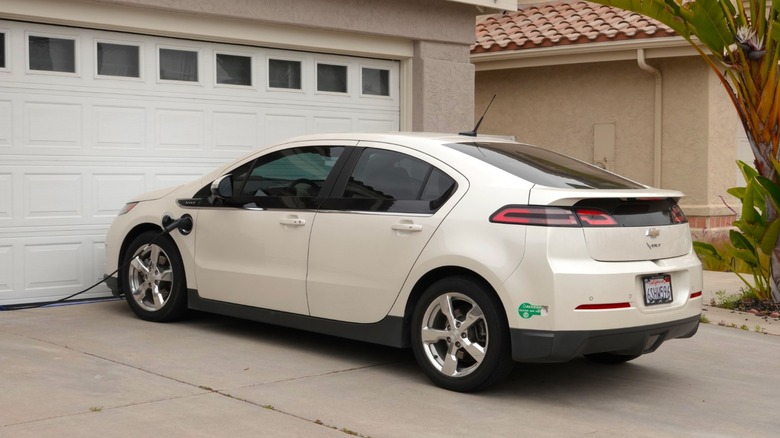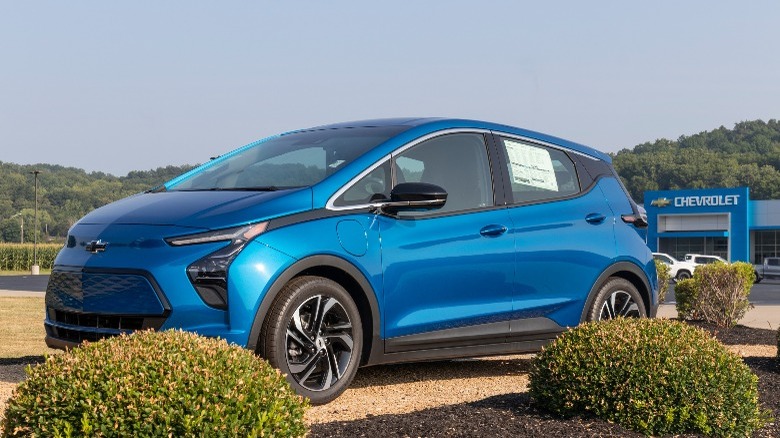The Chevrolet Volt's Terrible Resale Value Explained
In 2011, Chevrolet halfheartedly joined the electric vehicle market by releasing the Volt — a plug-in-hybrid featuring a 1.4-liter inline-four gas engine alongside a 111 kW electric motor (via General Motors). Over the years, the Volt's battery has gradually grown from the initial 16 kWh, ending up at 18.4 kWh in the 2019 model, slightly elevating the battery-only range of the vehicle in the later iterations. When it was first released in 2011, the Volt would have set you back $41,000 or $33,500 after tax incentives (General Motors, via Archive.org) and the price remained more or less consistent, with the 2019 model coming in at $34,395.
Despite generally positive reviews, sales for the Chevrolet Volt weren't spectacular, with GoodCarBadCar reporting that Chevrolet only sold around 157,720 units in the U.S. over the vehicle's nine-year lifetime. For context, in 2021, Honda sold 263,787 Civics — 67% more sales in one year than the Volt's entire lifespan. According to a 2020 used car study by iSeeCars (saved on Archive.org), the price of an average used Chevrolet Volt was $16,510, which represented a year-over-year drop of 8.4%, while other used hybrids, like the Toyota Prius, saw a decrease of only 1.1% from the previous year.
The Volt aged poorly in a maturing market
One important factor in the poor resale value of the Volt is market conditions. While the hype around electric vehicles dominates online discourse, statistics show that hybrid-electric vehicles (HEVs) far outnumber their plug-in-electric (PEV) and plug-in-hybrid (PHEV) compatriots, and it's not a trend that's slowing down either. According to The Bureau of Transportation Statistics, in 2021 there were almost twice as many HEVs sold than PEVs, which outsold PHEVs by a wide margin.
Variety, not curiosity, killed the cat. According to a report by EVAdoption [PDF], in 2020 there were only 55 PEV or PHEV models to choose from, which rose to 80 in 2021, and was projected to rise to 165 by 2025 — a marked increase in consumer choice when it comes to both PHEVs and BEVs. With new EVs like the Chevrolet Bolt EV starting at $25,600, it's easy to see why nobody wants to pay very much for a used PHEV. After all, PHEVs represent the worst of both worlds — they suffer typical EV battery degradation, limited electric range, and increased weight, combined with the added complexity and cost of an internal combustion engine.
As PEVs are commoditized, there's little motivation to buy a used PHEV unless the price is low, which is bound to push the Volt's price down. Combine the changes in the market and consumer attitude with the already-low demand for the Volt, and you have a perfect recipe for severe vehicle depreciation.

